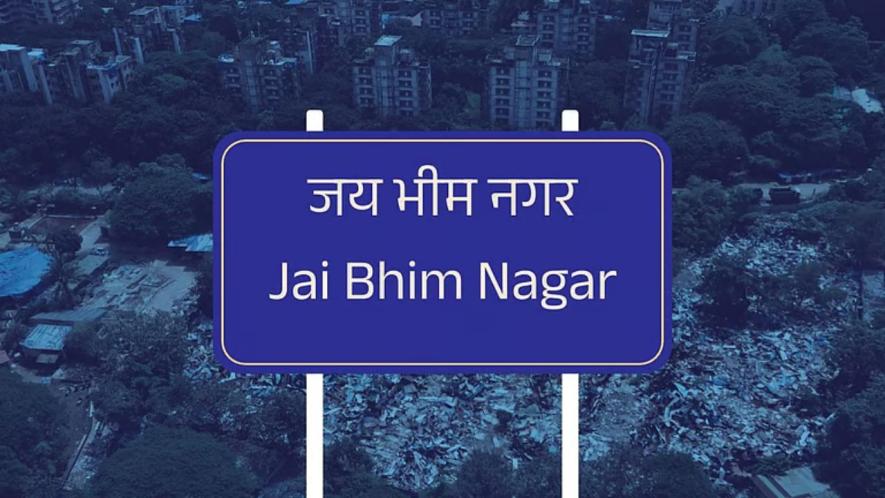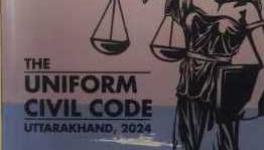Jai Bhim Nagar Demolitions & Doctrine of Unconstitutional State of Affairs

On June 3, 2024, the Brihanmumbai Municipal Corporation (BMC) announced the demolition of Jai Bhim Nagar. Subsequently, on June 6, 2024, BMC officials, joined by bulldozers and numerous police personnel, commenced the demolition process, displacing approximately 600 families who had resided in the area for nearly thirty years. The affected residents approached the Bombay High Court, requesting compensation and prosecution of concerned officials. Unfortunately, no substantial relief has been granted yet and these individuals continue to suffer hardship in meeting even their basic needs and rights. The demolition has forced many residents to take refuge on the streets, depriving them of their right to a dignified life, shelter, and adequate health care, resulting in the violation of Article 21 of the Constitution.
This article analyses the demolition undertaken by BMC, asserting that it contravenes the fundamental rights enshrined under Article 21 and the due process of law. Additionally, it examines the obligation to abide by the international conventions and treaties ratified by India relating to the right to shelter. Finally, this article advocates for the application of the doctrine of an unconstitutional state of affairs by the judiciary to identify, rectify and prevent the lawlessness of the executive.
The demolition has forced many residents to take refuge on the streets, depriving them of their right to a dignified life, shelter, and adequate health care, resulting in the violation of Article 21 of the Constitution.
Failure to uphold the right to life and due process
The right to life enshrined under Article 21 encompasses the essential elements of adequate housing, healthcare, education, and proper sanitation. The top Court in Kharak Singh v. State of Uttar Pradesh (1962) ruled that the expression ‘life’ encompasses more than mere animal existence and extends to all the means through which life is experienced and enjoyed. In the landmark case of Olga Tellis v. Bombay Municipal Corporation (1985), based on similar facts of unannounced eviction, the Court established that the right to life includes the right to livelihood and shelter which cannot be taken away without following the due process of law. No eviction can be ordered unless it facilitates public purpose and ensures the adequate rehabilitation of the aggrieved. Additionally, in Sudama Singh v. State of Delhi (2010), the Delhi High Court ruled that all eviction orders must be accompanied by adequate compensation or provision of alternate accommodation.
Furthermore, the principles of natural justice encapsulate the idea of due process of law. In A.K. Kraipak v. Union of India (1969), it was affirmed that the principles of natural justice are not only restricted to judicial function but also extend to administration matters. The act of demolition without adhering to principles of natural justice and the due process of law demonstrates the state of lawlessness. Firstly, the authorities acted prejudicially by blatantly supporting the builder despite being acquainted with its unlawful activities. Secondly, the authorities failed to grant the opportunity for a fair hearing and denied the legal recourse to the aggrieved. The notice regarding the demolition was provided during the period when the courts were closed and no consultation regarding their rehabilitation was done which is repugnant to the ruling of Sudama Singh. Thirdly, the notice was served merely 3 days before demolition, and the dwellers’ demand for time to respond was denied. Finally, the Maharashtra government disregarded the Urban Department's order prohibiting demolitions during the monsoon season and ordered the demolition without appropriate reasoning.
Analysis of International treaties and conventions
India has ratified various international human rights treaties regarding the right to adequate housing which are binding as per Article 51(c) of the Constitution. Article 14 of CEDAW emphasises on elimination of discrimination against women ensuring the right to enjoy adequate living conditions, including housing and sanitation. Article 25(1) of UDHR read with Article 11 of ICESCR provides that everyone has the right to an adequate standard of living. This analogous concept is also highlighted in Article 5 of CERD which provides the right to housing, public health, medical care and social security. Furthermore, Article 27 of CRC recognises the right to a standard of living for the child’s physical, mental, spiritual, moral and social development.
However, the demolition drive has resulted in residents taking refuge on the streets, violating their rights to dignified life, shelter, and healthcare, and even jeopardising women’s privacy and safety. Additionally, the demolition has deprived the children of education leading them to a dubious and bleak future. Consequently, the conventions and treaties ratified by India are not adhered to in the demolition process.
State tyranny and judicial apathy: The unconstitutional state of affairs
In the demolition of Jai Bhim Nagar, several governmental departments and authorities colluded to uphold the interest of the Hiranandani Group. Additionally, the authorities have moulded laws, used legal loopholes and overlooked the due processes to advance their interests.
In Re: Directions in the matter of demolition of structures (2024), a four-stage process for property demolitions was established, including a 15-day notice, a formal hearing, a final order explaining demolition necessity, and a 15-day appeal window for implementation. However, this is a fragmentary remedy and the judiciary can invoke the doctrine of an unconstitutional state of affairs, originated in Colombia, for continuous involvement to combat the tyranny of the administrative authorities. An ‘unconstitutional state of affairs’ is a situation where the violation of rights is not individualised, but structural. When the executive commits any malfeasance, then preventing abuse of power is necessary instead of individual remedy as reiterated in Nilabati Behera v. State of Orissa (1993). This doctrine acknowledges the government's failure to enforce policies against fundamental rights violations, justifying judicial intervention to combat structural causes and to restore constitutional order.
The Colombian Court identifies unconstitutional situations as violations of constitutional rights, owing to prolonged omission by authorities, and widespread endorsement of unconstitutional practices, indicating the use of state authority in ill faith, executive incompetence, and insensitivity.
The aforementioned area was legalized through a loophole in a Union government legislation stipulating the construction of low-cost apartments only. However, the BMC ignored the construction of high-rises by the builder violating the said stipulation. The Maharashtra State Human Rights Commission issued a suo moto order leading to demolition and unlawful detention of residents. The Maharashtra Slum Area Act of 1971 specifies procedures for surveying and consulting residents to determine the period of prior residence and rehabilitation. However, the authorities ignored the three-decade-old residence without providing adequate rehabilitation.
The authorities not only demolished during the monsoon season, but also prevented the residents from retrieving their possessions, and prohibited the recording of the data of injured by police atrocities.
The authorities not only demolished during the monsoon season, but also prevented the residents from retrieving their possessions, and prohibited the recording of the data of injured by police atrocities. Despite the declaration by the investigation committee rendering the demolition invalid, no action has been taken against the authorities. These instances highlight the abuse of power and blatant omissions on the part of administrative authorities.
Herein, the issue is not the demolition of the allegedly illegal buildings, but rather the process adopted to do the same. The tainted procedures and violation of Article 21 would be enough to fulfil the prescribed conditions for the applicability of the doctrine of unconstitutional state of affairs by the judiciary to keep a check on the executive and to further the cause of justice.
Despite the filing of petitions and lawsuits by the affected parties, no substantial remedy has been conferred to the aggrieved, and the position remains largely unchanged even after nine months. This prolonged delay is noteworthy and raises concerns about the efficacy of both the executive and judiciary.
To address this pressing issue, the application of the doctrine of unconstitutional state of affairs may be warranted, along with the proactive and continuous involvement of the judiciary through a ‘writ of continuing mandamus’. This doctrine can be implemented by ensuring first, that the court actively monitors compliance with its directives along with imposing penalties on the concerned body for non-compliance. Second, regular hearings should be conducted to review progress on the matter. Third, appropriate orders ensuring alternative and adequate rehabilitation should be issued based on the current status of the situation. Finally, a framework for institutional dialogue should be encouraged among the various branches of government regarding the issue.
This approach highlights the necessity for a constitutional commitment to transition from insufficient actions toward a progressive and gradual transformation of the circumstances. By employing this doctrine, the court can effectively embody the principles of judicial activism while maintaining a careful balance to avoid overreach and uphold the principle of separation of powers.
Courtesy: The Leaflet
Get the latest reports & analysis with people's perspective on Protests, movements & deep analytical videos, discussions of the current affairs in your Telegram app. Subscribe to NewsClick's Telegram channel & get Real-Time updates on stories, as they get published on our website.
























